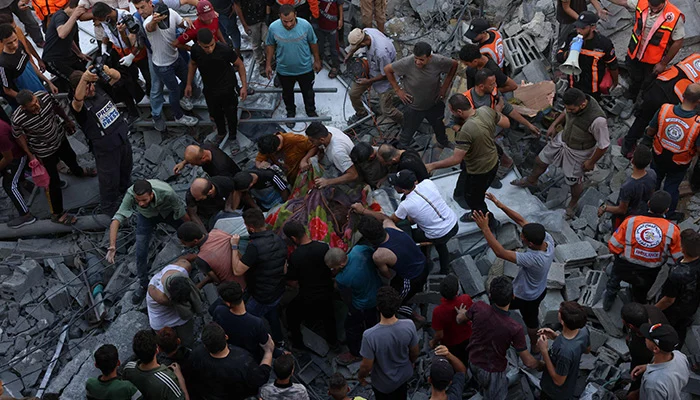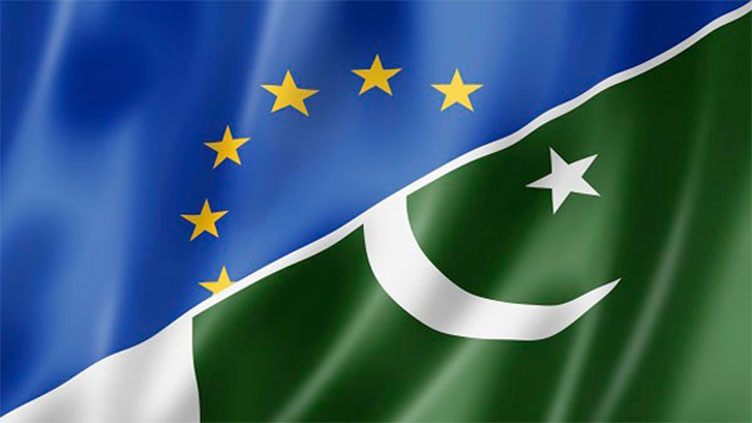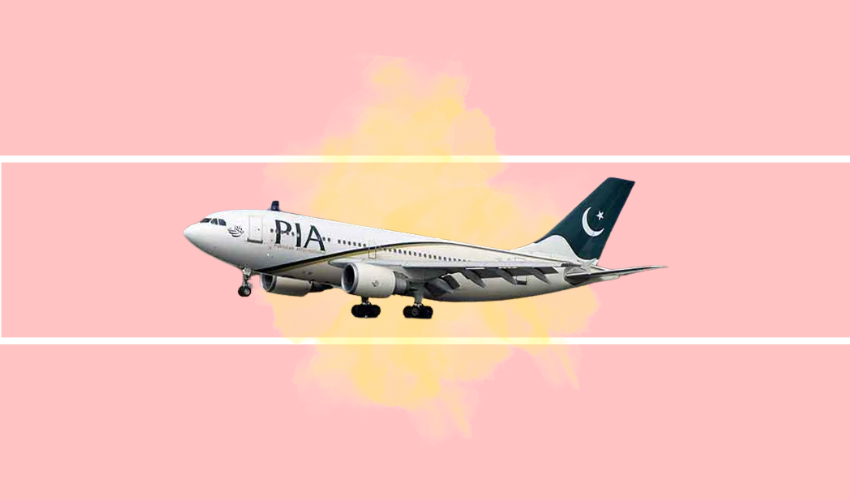- Arab rulers and the Muslim world need to realize that in this era of social and digital media, it’s not possible to suppress any news.
Ever since the Palestinian freedom group Hamas shocked Israel with a series of massive attacks on the latter’s soil, the debate over how the media covered the situation in ‘Gaza’ continues amid allegations, particularly from the Muslim and Arab world, that the West’s coverage is “biased”.
In the digital and social media age, the most disturbing aspect of the media coverage was the spread of tons of ‘disinformation and fake news, making things worse.
Unfortunately, there is no concept of “freedom of the press” and ‘freedom of expression’ within the Muslim and Arab world barring Al-Jazeera (Arabic and English), a Qatar-based news network, which today is competing with CNN, BBC, ABC, and other leading media outlets.
The dilemma of the Pakistani media, which is comparatively much more vibrant within the Muslim world, failed to develop itself in a manner to challenge or come even close to international standards. Yes, there is no doubt that the successive governments over the past few decades kept the media suppressed but the media houses by and large lacked the capacity to meet the challenges and were mostly dependent on global media for events of that magnitude. They even missed the opportunity of having their own ‘bureaus’ during the conflicts in Afghanistan, Iraq and Iran. Thus, 80% coverage of our media outlets revolved around domestic issues and only ‘politics.’ Even in the 24-7 circles of the electronic media, like the print, our journalism has yet to improve and go beyond — it is said.
Yes, there have been few exceptions after private TV channels for the time allowed to operate in Pakistan in 2001. Though some Pakistani journalists either on their own or through different sources did cover ‘Arab spring’, the big media houses in the name of ‘lack of resources’ did not give importance to such events.
Against this backdrop, it’s good to see that GEO News Network recently sent two of their reporters Ali Imran and Tariq Abul Hasan to cover the Gaza conflict and they are doing some excellent reporting. They are also expected to do some side stories over the plight of those suffering from the ongoing war, human rights aspects etc. If we really want to develop Pakistani media to come even near to International standards much more is required.
It is a fact that the media in the Islamic or Arab countries hardly have independent media or even professionally equipped. On the contrary, most Arab countries discourage freedom of the press and freedom of expression or for that matter people’s right to know. A Saudi journalist, Jamal Khashoggi’s brutal murder in Turkey is a classic example. The majority of these media outlets in the Arab world in particular are just the mouthpieces of the state.
Al-Jazeera is an exception but it was not an easy journey for the ‘news network’ which emerged as one of the strongest media houses and is considered as the voice of the Muslim viewers in general and Arab viewers in particular. It survived unprecedented pressure from the United States in particular after 9/11, due to its exclusive coverage which also included a version of al-Qaeda’s top leadership like a video message of its head Osama Bin Laden.
But, Al-Jazeera survived despite all such pressures even from the Arab countries including Saudi Arabia. Its coverage of international events, comments, talks, and most importantly its ‘documentaries’ are of high quality. All this helped the network rival CNN and BBC even in this era of disinformation Syndrome.
Millions of viewers in this part of the world have no other choice but to depend on stories coming from ‘western media outlets’ like BBC, CNN, ABC, or international wire services and newspapers. As a result whatever coverage, reports, photographs and videos we are getting are from these outlets whether some of them are ‘fake’ or based on ‘facts.’ Therefore, until and unless these countries allow ‘freedom’ to critical voices and allow them to compete, any criticism of the other media would be meaningless.
So, what Al-Jazeera did differently was that within years after its inception in 2001, it drew the attention of world media and even world leaders. It is its coverage and approach after the 9/11 attack on the Twin Towers that made the difference. Osama bin Laden was declared the most wanted person and al-Qaeda the global terror network. It also carried the other side’s (al-Qaeda) version and aired most of the video messages or standpoints of the organisation and fiercely defended its policy, saying it only gave coverage to both sides i.e. US and al-Qaeda.
The 9/11 attacks not only changed the world but also the media globally as its ethical standards declined sharply in the wake of the incident altering the course of history forever. Even during the Iraq war the way American and Western media were used through ‘state-backed’ planted stories about the ‘Weapons of Mass Destruction,’ in Iraq is the world’s worst example of ‘unethical’ journalism. This fake news was used as an excuse for an attack on Iraq to dismantle Iraq’s President Saddam Hussain and his government at the cost of killings of thousands of civilians.
Later, one of the leading American newspapers ‘publicly apologised’ and admitted that ‘they were used’ by the US government. Years later one BBC correspondent exposed how embedded American journalists were used for fake stories and videos about the unpopularity of Saddam Hussain. The documentary also showed how one of the American journalists was sent back when he confronted the US officials over such stories. But the worst of that time came when the so-called Western world, which is otherwise against capital punishment, not only backed the same for Saddam Hussain but also allowed the media outlets to broadcast the Iraqi leader’s hanging live — something unprecedented.
In December 2001, Al-Jazeera Managing Director, Al-Ali drew similarities: “When CNN was the only foreign news network allowed in Bagdad, during the Gulf war, it was accused of being Iraq’s mouthpiece. In Afghanistan, we were the only foreign news network in the Taliban-held territories, and we were being accused of being Taliban’s mouthpiece.” He added that, “there is a professional jealousy on the American side because now Al-Jazeera stands shoulder-to-shoulder with the major American network.” He went on to say that Al-Jazeera has been accused of being a CIA agent, an Israeli agent, Saddam Hussain’s agent, and a Taliban agent. “This shows that we present all sides. We must be doing something right.” (AL-Jazeera, by Mohammed El-Nawawy and Adel Iskandar).
Post-9/11, Al-Jazeera, both its Arabic and English news networks, became the alternate media because of its access to al-Qaeda and its leader Osama bin Laden, the two most wanted identities for the Americans. Most of bin Laden’s video messages were aired on the network and Western media was left with no other option but to pick from there.
The Qatar government came under tremendous pressure from both the US and Arab countries to not cover these events but the counterargument was whether the network denied or declined any coverage or reaction from the US government.
Interestingly, while the Taliban and many militant groups are ideologically against videos and photographs of human beings, al-Qaeda and Osama bin Laden, used videos as the most effective means to communicate. Later, many religious extremist groups also changed their stance and did not oppose photographs and videos rather they used them for their own coverage.
In Pakistan, only a few journalists succeeded in getting access to bin Laden or the top al-Qaeda and Taliban emir late Mullah Omar. Late Raheemullah Yosufzai of The News is considered the most authentic source on al-Qaeda and Taliban and had access to both Laden and Omer. GEO’s veteran anchor Hamid Mir was also among the first who interviewed bin Laden. Although, at that time he was the Editor of a Rawalpindi-based newspaper Ausaf, but, he knew that such an interview required an international audience so he asked the country’s leading English daily, DAWN, if they were interested in it. The DAWN management and Editor after going through it and verifying the authenticity decided to publish it. Within no time it not only hit the headlines all over the world but Hamid Mir, himself became the most wanted journalist and was interviewed by top leading Western media networks.
Pakistani print and electronic media missed the opportunities to attract millions of viewers around the world. Had they expanded their news networks beyond Pakistan things would have been different and at least some of our media outlets would be rivalling the likes of Al-Jazeera.
Western media may have their own angle but at least they have their presence in these countries at times of war and peace. Thus, in this backdrop, if one sees the coverage of the present Israeli-Palestinian conflict many of these news outlets have their access to both sides. So, unless the Muslim and Arab world allowed independent media news network operations in their own countries Arab and Muslim viewers and readers would have little choice but to depend on BBC, CNN, and other such channels.
Hats off to those hundreds of journalists belonging to different news networks who laid down their lives covering these events and wars in Iraq, Afghanistan, Syria and Gaza.
Arab rulers and the Muslim world need to realize, the sooner the better that in this era of social and digital media, it’s not possible to suppress any news. The Arab Spring is a classic example. Israeli brutalities should be exposed in a more expressive manner but unfortunately, western media because of their own angle and approach avoided highlighting cases of injustice and the use of brute Israeli force and barring Al-Jazeera, there is not a single news network in the Muslim and Arab world which could compete with the powerful media around the world.

 Latest News2 days ago
Latest News2 days ago
 Business2 days ago
Business2 days ago
 Business1 day ago
Business1 day ago
 Business1 day ago
Business1 day ago
 Business2 days ago
Business2 days ago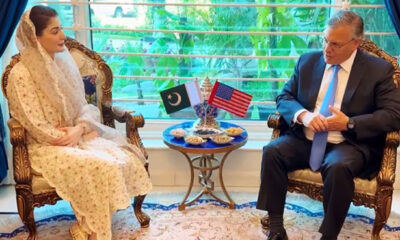
 Latest News2 days ago
Latest News2 days ago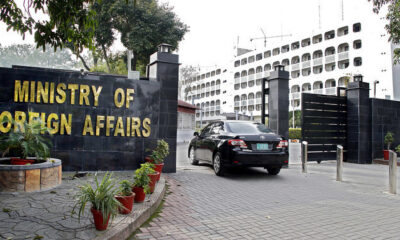
 Latest News2 days ago
Latest News2 days ago
 Latest News2 days ago
Latest News2 days ago
